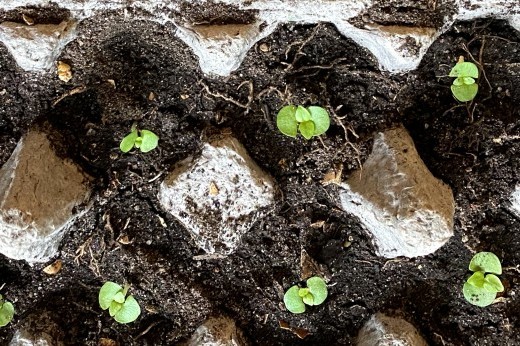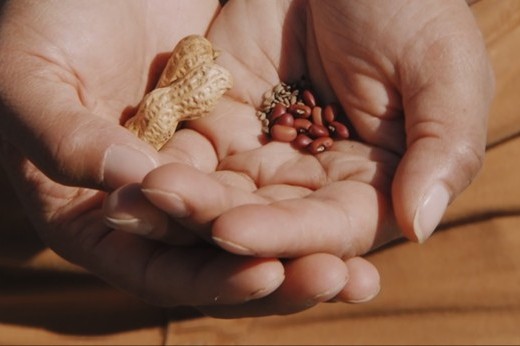Herbalism, the practice of using herbs for medicine, is a fundamental form of healing for people around the world. For generations, African Americans have used herbal knowledge to support them on pathways to liberation.
I’m part of a growing community of Black herbalists that is reshaping the way we pursue our own healing today. Many of us are inspired by the lives of Black folk herbalists who have come before us. As impactful as these herbalists were, their stories are not always widely shared.
As we celebrate Juneteenth this year, take a moment to learn about three Black herbalists whose work has been foundational to present-day herbal practitioners.
Harriet Tubman
Abolitionist Harriet Tubman is very well-known, but her reputation as an herbalist is perhaps less so. Born enslaved on the Eastern Shore of Maryland in 1822, Tubman was raised in a wetland environment. It was her job as a child to trap muskrats, a common wetland animal. Her ecological and herbal knowledge would help her later in life, when she would take back her freedom and lead enslaved people to do the same.
.jpg)
Conductors in the Underground Railroad would need to have knowledge of the landscape to survive, historian Kate Clifford Larson told Smithsonian magazine. Common plants used for sustenance were sassafras, black cherry, and paw-paw.
Tubman also used her herbal knowledge as a Union nurse during the Civil War, helping to cure soldiers of dysentery and treating infections, according to Larson. In her later years, when she lived in Auburn, New York, she would make a remedy for colic from ingredients in her garden and items foraged from the woods.
.jpg)
Doctor Caesar
Doctor Caesar, an enslaved man living in South Carolina in the 18th century, is considered the first Black person to have their medical findings appear in print. He was known for making herbal remedies for poison using narrowleaf plantain and common horehound. At the time, notes historian Nic Butler in a piece about Caesar, white slaveholders feared being poisoned by the enslaved people who made their meals. In 1740, the colony ratified a law that made poisoning punishable by death.
Word spread that Caesar had been curing people of suspected poisonings, as well as rattlesnake bites and a variety of other ailments. When Caesar was around 67 years old, Caesar shared his medicinal knowledge with South Carolina legislators in exchange for his freedom and financial compensation, and he was freed in 1750. His antidotes were published in the South Carolina Gazette. Soon after, however, a law was revised prohibiting enslaved healers like Caesar from administering medicines to enslaved people.
Information about Caesar's life after he was freed is limited, and he died just a few years later. Doctor Caesar’s story shows how powerful plant knowledge can be, and offers a glimpse into ancestral healing traditions that survived against the odds.
Emma Dupree

Emma Dupree was born in 1897 to formerly enslaved parents in Pitt County, North Carolina. She was an herbalist and traditional healer known as a “granny woman,” and used remedies from her garden to heal her community. Dupree’s “garden-grown pharmacy” included sassafras, white mint, double tansy, rabbit tobacco, maypop, mullein, catnip, horseradish and silkweed. She also foraged plants from the banks of the Tar River.
As a community herbalist, Dupree made her remedies accessible to everyone. “She became the doctor for this whole community around here,” pastor Jane Rose told The Daily Reflector, “and she never charged anybody because she felt she was simply a vessel and that God was using her through these plants to help others." In Little Medicine Thing, a rich oral history interview with Dupree, she shared remedies she’s made over the years, and even recalled that she “toted her tea” to help people during the 1918 influenza.
Dupree won multiple awards, including the North Carolina Heritage Award, a lifetime achievement award recognizing traditional artists. She died in 1996, shortly before her 99th birthday. A sign recognizing Dupree was unveiled in her town of Fountain, North Carolina in 2022.

The stories of Doctor Caesar, Harriet Tubman, and Emma Dupree tell us that herbal knowledge has always been part of the Black experience. They remind us of the expansive ways that plants have supported us when society didn’t.
Today, many Black herbalists continue this work. This includes people like Marisa Hall, who provides free herbal medicine to Black people through an online shop, and Jess Turner of Olamina Botanicals, who offers an herbal CSA throughout the season. In my own practice, I offer Community Herbal Share days with herbalists Emilyn Sosa of Folk Mondaze, Corrina Wainwright of Harlem Roots, and Zaria Poem of Ripe Moon Healing Arts, where BIPOC-identifying people can learn about medicinal plants and take home free plants or remedies.
I am grateful to be part of a line of Black herbalists that continue to provide abundant botanical knowledge to their communities while preserving the knowledge of our ancestors.
Want to learn more? Explore the work of some additional Black herbalists I support:
Journei Bimwala, eachonecarryone.org/nature-classroom
Suhaly Bautista-Carolina, moonmotherapothecary.com/workshops
Nikki Minor, chicorybotanicals.com
Jamesa Hawthorne, jamhawherbals.com
J Wortham, jennydeluxe.com/sunlove




